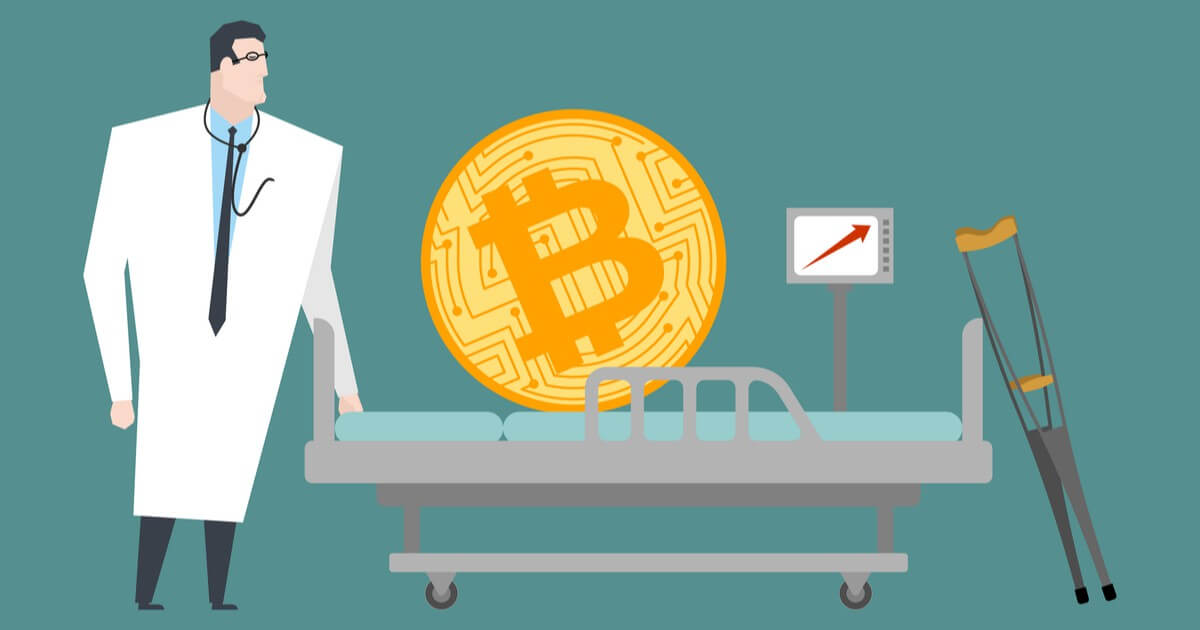Cryptoaddiction: The Uglier Side of Digital Currencies
Fernando Sanchez Aug 13, 2019 00:35
Addiction is an ugly word, but it's an unfortunate reality for many people. Crypto has brought about a new type of addiction. This is an introspective look at what crypto addiction looks like, and advice on where to find help.

John almost dropped the phone as he fumbled the handset out his pocket, his hands trembling with a heady mix of anticipation and fear. For the seventh time in the past hour, he opened a browser tab to check the most up-to-date price of his favorite obsession: Bitcoin. A figure flashed on the screen, and John's heart took a tumble. The price had gone down by seven cents in the last few minutes. He cursed under his breath, clutching his phone tighter as he looked at the fluctuating line on the screen. Feeling hot and bothered, John awkwardly stuffed the phone into the breast pocket of his jacket, glancing with distrust at the people sitting across from him in the subway. They had been looking at him funny for a while now, and he saw them shaking their heads slightly every time he whipped his phone out. What do they know, John thought. I know about Bitcoin. It's the future, right? People get rich with this stuff. I better look at the price again...
John is just a figment of this writer's imagination, a creation to illustrate a point. But what John represents is a very real issue. Maybe even you can relate to it. If you do, you may have a problem.
Early in the summer of 2018, the world's first specialized treatment center for crypto addicts opened its doors in Scotland.
Castle Craig Hospital, located amidst the quaint and picturesque Scottish county of Peeblesshire, is the unlikely background for an emerging behavioral pattern that, though spawned out of an inherently modern issue, is deeply rooted in a centuries-old human trait: Addiction.
Castle Craig is the largest addiction treatment center in the UK. Over 10,000 patients have undergone therapy there since the facility first opened its doors back in 1988. Drinking issues, gambling, drugs, internet gaming, the staff have seen it all.
But recently, a new type of patient has been seeking treatment and solace at the facility.
The advent of cryptocurrencies brought on a systemic shift to the financial world, challenging fiat money for supremacy. The battle between these two mighty foes rages on, but the adoption and trading of digital currencies have created some unintended consequences that not even the fabled Satoshi Nakamoto entity could have anticipated.
The nature of addiction
Addictive behavior is as much physiological as it is psychological. In other words, addiction patterns, be it to a drug, an emotion, or an activity have both a physical and a mental component.
The addict sees the rewarding effects of his or her addiction as a compelling incentive to do it all over again, so the cycle never ends unless help is given. There's often a correlation between mental health and addiction. The latter can be seen as escapism from whatever condition one might suffer.
Cryptoaddiction and compulsive trading
Addiction knows of no boundaries of race, personality type, or socio-economic upbringing. The substance or behavior may differ among different strata of society, but the underlying mechanism is identical. Addiction impairs control over the usage of the substance or activity that causes the compulsion.
Cryptocurrencies have become the addiction of choice for many people, who compulsively trade them, monitor their price fluctuations, just as our own John character did over and over while riding on that busy subway train. In extreme cases, people go as far as selling assets and taking loans to invest in more digital currencies. The fluctuating nature of cryptocurrencies appeals to those prone to develop addictive patterns. With its high-risk, high-gains appeal, digital money is inherently a high-risk proposition, and prime to become addictive for those predisposed to such behavior.
Experts in the field of addiction see this new condition as a subset of gambling, where individuals feel compelled to try one more time, always hoping to hit the jackpot to recoup their ever-mounting losses.
If you have ever thought that you may suffer from a crypto addiction problem, you probably do. If you find yourself constantly checking websites for the latest price variations, or feeling the compulsion to think about trading currencies while going about your daily life, it is time you seek help, and quickly.
Because crypto addiction bears more than passing similarities to the internationally recognized Gambling Disorder, it can be diagnosed and treated with relatively straightforward ease.
Conclusion
Addiction is usually bad news for the sufferer, and those around them, because of the financial, social, and psychological implications.
Cryptoaddiction is a sign of the times, a 21st-century problem born out of human traits like greed and envy.
Recognition of a problem's existence is the first step to recovery, and now the medical profession is taking a serious look at the crypto world, which can only be a positive development. If you see a bit of John in you, do something about it.
Images via ShutterstockImage source: Shutterstock